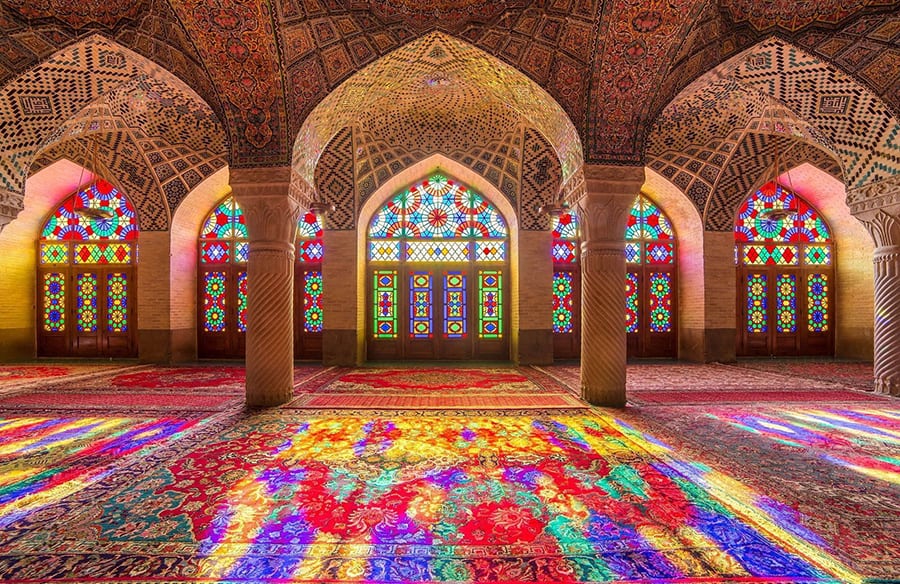In the Name of Allah, the Merciful, the Beneficent,
Salutations and Peace of Allah be upon His Noble Messenger and Our Beloved, Teacher, Leader Muhammad and upon his Household and Companions in their entirety, to proceed:
﴾ فَمَا وَجَدْنَا فِيهَا غَيْرَ بَيْتٍ مِّنَ ٱلْمُسْلِمِينَ ﴿٣٦
English – Sahih International
And We found not within them other than a [single] house of Muslims.(36)
Marriage is perhaps something which as youth our minds are often preoccupied with. This is not an inappropriate thing but rather a blessing from Allah and shows that the young of this Ummah are still steadfast in desiring an Islamic alternative to what the world so readily offers them in Harram. Certainly, one of the noble functions of marriage is procreation as we learn from the following Hadith:
Narrated `Abdullah: We were with the Prophet (ﷺ) while we were young and had no wealth. So Allah’s Messenger (ﷺ) said, “O young people! Whoever among you can marry, should marry, because it helps him lower his gaze and guard his modesty (i.e. his private parts from committing illegal sexual intercourse etc.), and whoever is not able to marry, should fast, as fasting diminishes his sexual power.” – Sahih al Bukhari 5066
But whilst this is an element of marriage that is more well known I wish to also make you, the reader, privy to another dimension of marriage which you should be well acquainted with before proceeding on this noble path; this is the formation of the Muslim Household.
In order to be prepared for this mighty task it requires that to the best of one’s abilities one make sure that they are reflective of the qualities and values they would wish their future Muslim Household would spread to society and future generations. This requires that one embarks on purifying their soul from all evil qualities whether made manifest on the limbs or that linger in the chest. It also means mustering the concept of duties and responsibilities. Marriage, like many aspects of Islam, is a contract. Islam is built on contracts. Between Allah and His slave is a contract that if His slave should believe, should not associate partners with Him, should seek His forgiveness, worship Him and do good then He will receive Paradise if Allah so wills. Likewise, between the ruler and ruled is a contract that should the ruler implement the laws of the Quran and Sunnah and act justly then the people will give them his trust and obedience. Marriage is not unlike this at all, this is a contract between the two spouses that they will fulfil their respective duties to one another and help each other in coming closer to Allah, Exalted be He. These bind the parties in particular ways including financially whereby the Husband must provide for his wife and also give her a dowry and is also achieved via both parties strictly observing loyalty to each other. But in order for each spouse to know each other’s and their own respective duties and rights they should be adequately versed in the Fiqh of Marriage and the Muslim Household. This is also important that they be able to impart to their children correct Islamic knowledge so as relates to general knowledge of Aqeedah (Theological or Creedal Beliefs) or Fiqh al Ibadah (Jurisprudence of Worship), they too should be adept in their knowledge of this. This is echoed most pertinently perhaps by the famous Hadith of the shepherd:
Abdullah ibn Umar reported: The Messenger of Allah, peace and blessings be upon him, said, “Every one of you is a shepherd and is responsible for his flock. The leader of people is a guardian and is responsible for his subjects. A man is the guardian of his family and he is responsible for them. A woman is the guardian of her husband’s home and his children and she is responsible for them. The servant of a man is a guardian of the property of his master and he is responsible for it. No doubt, every one of you is a shepherd and is responsible for his flock.” – Source: Ṣaḥīḥ al-Bukhārī 7138, Ṣaḥīḥ Muslim 1829
Marriage is known as ‘Nikah’ in Arabic, Sheikh Hassan Ayyoub notes that ‘Nikah’ is an Arabic word with the meaning of ‘joining’ and perhaps this elucidates to us the first function or objective of the basis of the Muslim Household. The Muslim Household binds the community together through one of the strongest of bonds and that is marriage. It solidifies the formation of the community together binding two already pre-existing Muslim individuals or families together in a single union. A successful and Islamic union however can be aided through ensuring that one picks the right spouse. These qualities, Allah Willing, in each respective spouse are like a lamp in a dark room, if they emit them then they spread their gleams and rays. For the wife we know from the Hadith what qualities are sought in her:
Narrated Abu Huraira: The Prophet (ﷺ) said: ‘A woman is married for four things, i.e., her wealth, her family status, her beauty and her religion. So you should marry the religious woman (otherwise) you will be a losers.’ – Sahih al Bukhari 5090
As for the husband he should be someone who is modelled off the Sunnah, brave yet wise, patient yet eager, masculine yet with the weak and children merciful and kind, pious and practicing yet not arrogant or extreme, dutiful and humble, handsome yet lowering his gaze and not showing off. In this sense the potential husband should combine religious practice with manners and good character, we too learn this from the following Hadith:
Abu Huraira reported: The Messenger of Allah, peace and blessings be upon him, said, “If someone proposes marriage to you whose religion and character satisfies you, then you should accept it. If you do not do so, there will be trials on the earth and the spread of corruption.” – Source: Sunan al-Tirmidhī 1084
This Hadith also provides us with a warning for both brothers and sisters, being too indecisive or selective with regards to marriage will allow corruption to spread. This is because no one is fully ready for marriage, everyone is upon their own spiritual journey and so long as a decent degree of compatibility is met then this is what is important, otherwise people will attempt to satisfy their desires through other unlawful means. It is also important not to downplay the fact that beauty and handsomeness should play a role in the selection process to secure the longevity of a marriage and also fulfil that objective of helping each partner lower their gaze. The jurist Ibn Abidin perhaps for this reason said:
“…A person should not marry his young daughter to an old or an ugly man, but he should marry her to one similar.”
Once the pair have been married then there should be care, mercy and love between the two which forms the basis of a compassionate Muslim Household. This is perhaps best described in the following Ayah where Allah, Exalted be He, says:
‘And of His signs is that He created for you from yourselves mates that you may find tranquility in them; and He placed between you affection and mercy. Indeed in that are signs for a people who give thought.’ The Noble Quran 30:21
This is from the signs of Allah on this Earth that we may know Him. Marriage is not only about relieving sexual desires but also that human desire for friendship and companionship. Marriage can teach people compromise and the benefits of understanding different viewpoints which itself means that the Muslim Household is a microcosm of an Islamic society which it makes up. Through love, compassion and shared ideals it teaches the members of the family unit tolerance and understanding. In relation to this Allah, Exalted be He, says:
‘…They are a clothing for you and you are a clothing…’ The Noble Quran 2:187
Abu Ala Maududi (Rahimullah) gives the following explanation to this part of the verse:
‘That is, just as nothing can intervene between the clothes and the body and each fits into the other naturally, so is the relation between the husband and the wife: each is a means of comfort, protection and happiness for the other.’
But it is not sufficient for a husband just to provide compassion, just like with wider society. He has an active duty to provide for his wife financially whether in marriage or in divorce:
‘And give the women [upon marriage] their [bridal] gifts1 graciously. But if they give up willingly to you anything of it, then take it in satisfaction and ease.’ The Noble Quran 4:4
‘…and clothing and maintenance must be borne by the father in a fair manner…’ The Noble Quran 2:233
‘Let a man of wealth spend from his wealth, and he whose provision is restricted – let him spend from what Allah has given him. Allah does not charge a soul except [according to] what He has given it. Allah will bring about, after hardship, ease [i.e., relief].’ The Noble Quran 65:7
‘Lodge them1 [in a section] of where you dwell out of your means and do not harm them in order to oppress them.2 And if they should be pregnant, then spend on them until they give birth. And if they breastfeed for you, then give them their payment and confer among yourselves in the acceptable way; but if you are in discord, then there may breastfeed for him [i.e., the father] another woman.3’ The Noble Quran 65:6
And also, he has a duty to support her within the household as we learn from the following narrations:
Narrated Al-Aswad: I asked `Aisha what did the Prophet (ﷺ) use to do at home. She replied. “He used to keep himself busy serving his family and when it was time for the prayer, he would get up for prayer.” Sahih al Bukhari 6039
Hisham said, “I asked ‘A’isha, ‘What did the Prophet, may Allah bless him and grant him peace, do in his house?’ She replied, ‘He did what one of you would do in his house. He mended sandals and patched garments and sewed.”
“Thus concludes the first part of this series giving a brief overview of the initial step required to establish the Muslim Household, which is marriage. In the coming articles we shall, insha’Allah, delve into the desired practices, qualities and characteristics of the Muslim Household and its connection to preserving our Islamic identity and purifying our community. “




